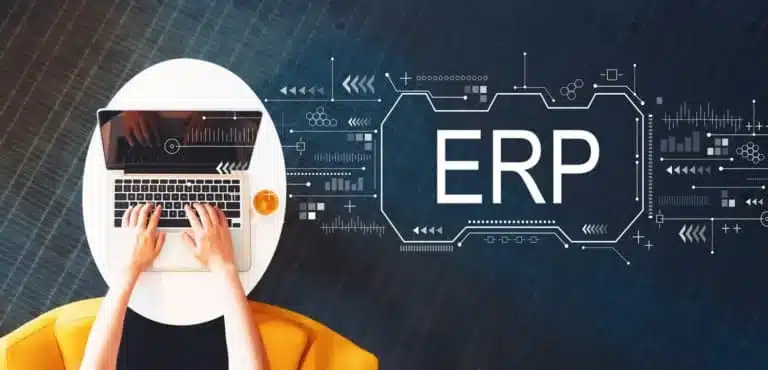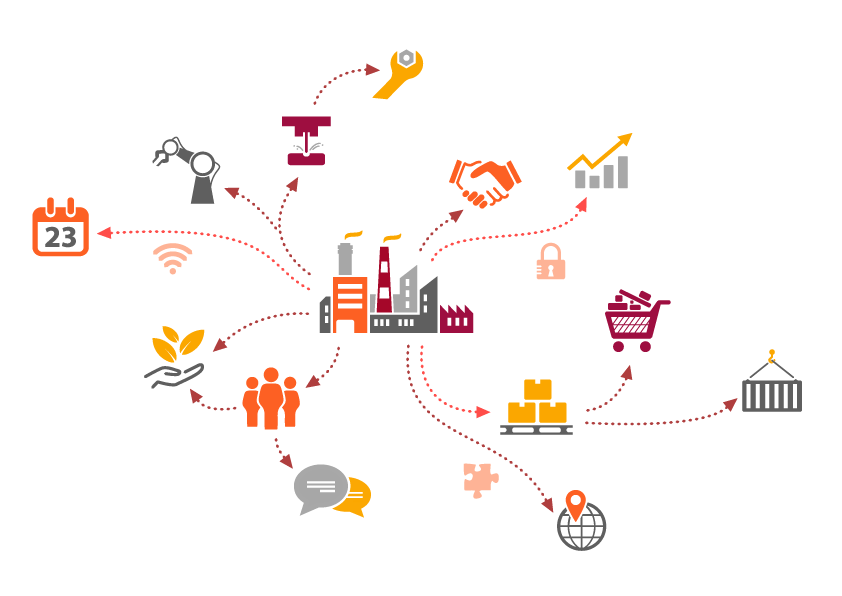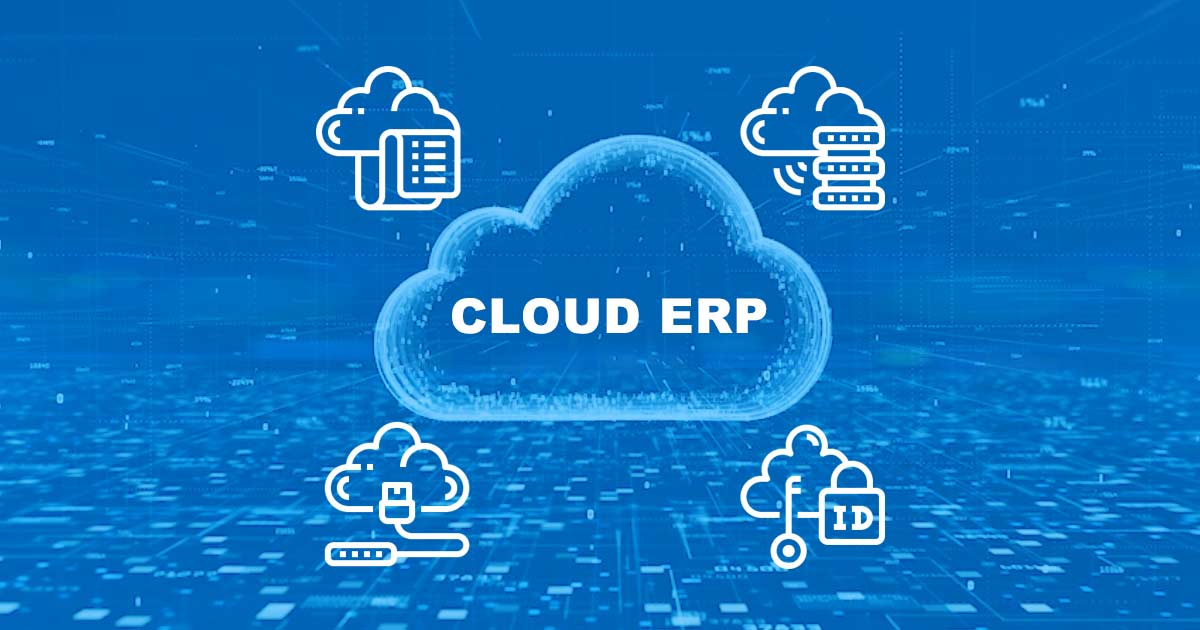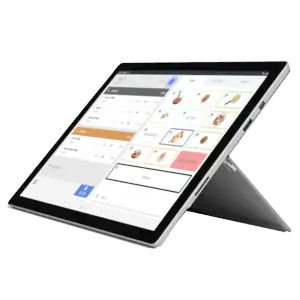Running a business means managing all of the details like product prices, stock, memberships, schedules. To make the vast amount of data easy to handle for managers, most companies opt for an enterprise resource planning (ERP) system. The goal of ERP software is to make business processes and data accessible and understandable in a single system.
An ERP implementation is not only designed for big companies, it is also a very valuable business technology for small and medium-sized businesses. Find out what is ERP and what the best ERP solutions out there in this article.
What is Enterprise Resource Planning (ERP) software?

ERP is short for enterprise resource planning. In a nutshell, ERP software allows you to manage all main business processes in one central, integrated system. This kind of business management software makes it easy to collect, store, manage and analyze relevant business data. One of the best features of enterprise resource planning (ERP) is that you can see data in real-time.
With ERP systems, you can address cash flows, inventory management, stock, orders, transactions and employee schedules. Some even have a integrated customer relationship management (CRM) system, that can be used to manage and service loyal customers, for example, create custom promotions.
Enterprise resource planning systems are a valuable resource for all business models and department heads since it gives valuable insights about customers and product demand. ERP software is valuable also for the sales team and waitresses since it helps to provide better and faster customer service via insights into human resource management. After all, it all affects the customer experience.
Main features and functionalities of ERP systems:
- ERP is an integrated system. This means that you can access the data conveniently from various devices, such as desktop, mobile, different connected apps.
- All data is updated in real-time. When a customer makes the purchase, you instantly have an update in your enterprise resource planning (ERP) software.
- ERP has a design that is consistent across devices. It is easy to use from desktop, waitress app, kitchen display, and other integrated devices.
- There is a central, secure database where all the information is stored. Most of the newest ERP systems are cloud-based with easy access from all necessary devices.
What are the benefits of ERP solutions?
Enterprise resource planning solutions offer even medium-sized businesses a variety of tools that enhance internal processes, make business operations easier, and even help human resources plan the workforce. After all, outward success usually comes from internal solutions that work. Tools that you give to your employees, influence the service the customers get.
Businesses of all sizes can benefit from enterprise resource planning software. Here are some examples how ERP solution benefits your company.
ERP increases productivity and efficiency across supply chain management

Managing a business means you have multiple entities that need to be linked at some point. ERP systems provide a central station for all business activities and results. The technology helps you improve the efficiency of your business alongside your project management via cloud computing.
ERP gives you real-time information and updates and allows you to make time-consuming management activities, like updating stock information, creating business reports, and sales analysis, easier and therefore more efficient.
An ERP system can also improve communication between different departments since it is one central database where everything is stored. For example, when an item in your retail store has only a few pieces left in stock, it can notify the production or sales manager to order more. Even better, with some retail pos software you can automate stock orders.
For restaurant businesses, there is an option to use additional tools like the waiter app and kitchen display that are connected by ERP. This way the waiter can add the customer’s order in the tablet or mobile app and the information is sent right away to the kitchen display so the cooks know about the new order instantly.
Reduce operational costs
ERP helps to remove human errors that sometimes do happen. Inventory management helps you understand when, where and what are you selling so you can stock up at the right time. No more leftovers or missing stock with this warehouse management solution! With enterprise asset management, you can identify when is your restaurant or retail store getting the most customers and you can adjust the schedule of your employees accordingly, thus streamlining the process of handling human resources with workflow management.
Real-time reporting
Make smarter decisions about your business by having accurate and updated information. ERP makes for good accounting tools to ensure you have all the necessary data. Analyze information, create sales reports, get new insights and adjust your activities accordingly.
Integrated system
Whether you use an on-premise or cloud-based ERP software system, you have one central database for everything. This makes it easy to always have access to needed information and nothing gets lost in the process. Customer data, inventory, sales, transaction – ERP hosts all aspects of business processes.
Flexible solution
An ERP system is not standardized. There are many customization options available, even if opting for a subscription model. It can also be connected with various third-party applications. For example, CompuCash can be connected with different food delivery apps that make handling incoming orders very convenient and seamless. Not to mention, you can connect barcode readers, scanners, credit card machines, and other necessary hardware.
Cloud-based or on-premise ERP?
When it comes to ERP software, there are usually two options. You can choose between cloud-based ERP solutions and on-premise software. Let’s take a minute to compare those two.
Cost
The cost of business software is something to consider for small and medium-sized companies. Cloud-based solutions are often subscription-based. This means that there is a small fixed monthly fee which makes this available for many small businesses and medium-sized companies. On-premise ERPs are usually more costly and the return on investment may be expected after many years.
Security
ERP software hosts sensitive information from the customer base to financials. This means that security is an important factor. When you opt for on-premise ERP software you also need to make sure that your security system is bulletproof enough. For cloud-based ERPs, the provider usually makes sure the data is stored securely.
Customization
A cloud-based ERP system is developed and designed by the provider. ERP vendors will continuously improve their products. This means you will always have the latest version and updates available for your software.
On the other hand, you do not have many customization options available. On-premise ERP system takes the special needs of your business more into account and it can be customized according to the needs of the business.
Implementation
Cloud-based ERP is usually a subscription-based product that is ready for implementation. There are not many customization options available which also makes the implementation time on cloud services shorter. On-premise software can be adjusted to the needs of the business, but that usually means more time for development and implementation.

ERP system examples
There are different enterprise resource planning software available on the market and they all offer slightly different benefits for your company. Their central offering is enterprise resource planning but depending on your business, you might benefit from different functionalities.
Here are some examples of top ERP software companies.
NetSuite
Oracle NetSuite is an ERP system that offers financial management, assistance in the planning process, order, production, inventory, and procurement management. From the financials’ side, it helps you make smarter business decisions faster and plan a budget, and forecast cash flows.
Oracle NetSuite is an integrated system, that allows you to link sales, finances, orders, and returns. If you are one of many manufacturing companies with a focus on product lifecycle management, you can work efficiently by having a real-time look into production processes to assist financial management. Inventory and supply chain assistance help to make sure that the right items are at the right place at the right time.
Scoro
Scoro describes itself as an end-to-end work management software. The software helps you keep track of three important elements of a successful business – time, activities, and money.
Regarding time management, it offers functionalities such as planning and prioritizing work in a simple way, sharing calendars and timesheets, so everyone knows what is going on, and monitoring both billable and non-billable hours to make sure time is spent on the right activities.
For project management, Scoro offers a real-time Gantt chart to keep track of tasks, progress, events, etc. It also keeps in mind that many tasks may depend on each other, and for that, they indicate how changes, delays, or logged hours impact scheduled plans.
The software also offers a comprehensive financial overview of your company. You can keep track of purchases, orders, costs, and budgets in real-time. Scoro also offers a full view of each customer you have. This way you can always check out what communication there has been, what quotes have been made and invoices issued.
CompuCash
CompuCash is a unique solution that combines POS and ERP functionalities. It is designed for all service-providing companies. The software offers a holistic ERP solution that successfully integrates several otherwise separate systems. It is as much a customer service tool as it is a business management system. Offering a user-friendly interface, it stores all data in its cloud based solution and the system can be accessed from different devices.
Let’s take a look at what different sectors gain from this ERP software.
Restaurants, bars, and nightclubs benefit from defining product panel buttons, creating product variables and parameters. Waiter apps allow to mark courses and split invoices to make transactions smooth and simple for the customers. CRM module permits you to create special offers and discounts, so you can treat loyal customers. Everything is updated in real-time and data can be accessed also offline.
Benefits of the ERP for retail and ticket sales organizations include access to sales reports, dynamic price tag design options, and can add barcode and QR scanners. Many businesses also benefit from self-service checkout options as it reduces labor costs and shortens waiting time for customers.
For a hotel and lodging establishment, the system offers access to a calendar-based bookings management feature that offers a visual overview of occupancy. You can make differentiated price lists by season and weekdays. ERP helps you with bookings, prepayments, settlements, and sales management in an organized way. Quick check-in and out helps to save customer’s time and improve service quality.
Conclusion
An ERP software is a valuable source of built in business intelligence both for the management and other departments and even for salespeople. The goal of ERP solutions is to make both internal processes and also customer service smoother and faster. It can be used as everyday business management and customer service tool.
Designed for businesses in all shapes and sizes, the ERP offers features such as analytics, inventory and supply management, sales and transactions, and other functionalities in a single, centralized system that is easy to implement.
Do you want to know more about ERP software and how that can improve your business? Contact us a request a demo!

Looking for a Delivery Integrated Point of Sale solution?
Ask our specialist Marc for more info +971 50 566 5278 or write [email protected]

